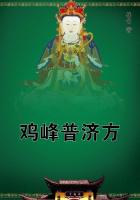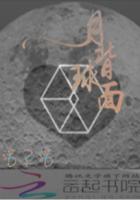An acre in Middlesex is better than a principality in Utopia. The smallest actual good is better than the most magnificent promises of impossibilities. The wise man of the Stoics would, no doubt, be a grander object than a steam-engine. But there are steam-engines. And the wise man of the Stoics is yet to be born. A philosophy which should enable a man to feel perfectly happy while in agonies of pain would be better than a philosophy which assuages pain. But we know that there are remedies which will assuage pain; and we know that the ancient sages liked the toothache just as little as their neighbours. A philosophy which should extinguish cupidity would be better than a philosophy which should devise laws for the security of property. But it is possible to make laws which shall, to a very great extent, secure property. And we do not understand how any motives which the ancient philosophy furnished could extinguish cupidity. We know indeed that the philosophers were no better than other men. From the testimony of friends as well as of foes, from the confessions of Epictetus and Seneca, as well as from the sneers of Lucian and the fierce invectives of Juvenal, it is plain that these teachers of virtue had all the vices of their neighbours, with the additional vice of hypocrisy. Some people may think the object of the Baconian philosophy a low object, but they cannot deny that, high or low, it has been attained. They cannot deny that every year makes an addition to what Bacon called "fruit." They cannot deny that mankind have made, and are making, great and constant progress in the road which he pointed out to them. Was there any such progressive movement among the ancient philosophers? After they had been declaiming eight hundred years, had they made the world better than when they began? Our belief is that, among the philosophers themselves, instead of a progressive improvement there was a progressive degeneracy. An abject superstition which Democritus or Anaxagoras would have rejected with scorn, added the last disgrace to the long dotage of the Stoic and Platonic schools. Those unsuccessful attempts to articulate which are so delightful and interesting in a child shock and disgust in an aged paralytic; and in the same way, those wild and mythological fictions which charm us, when we hear them lisped by Greek poetry in its infancy, excite a mixed sensation of pity and loathing, when mumbled by Greek philosophy in its old age. We know that guns, cutlery, spy-glasses, clocks, are better in our time than they were in the time of our fathers, and were better in the time of our fathers than they were in the time of our grandfathers. We might, therefore, be inclined to think that, when a philosophy which boasted that its object was the elevation and purification of the mind, and which for this object neglected the sordid office of ministering to the comforts of the body, had flourished in the highest honour during many hundreds of years, a vast moral amelioration must have taken place. Was it so? Look at the schools of this wisdom four centuries before the Christian era and four centuries after that era. Compare the men whom those schools formed at those two periods. Compare Plato and Libanius.
Compare Pericles and Julian. This philosophy confessed, nay boasted, that for every end but one it was useless. Had it attained that one end?
Suppose that Justinian, when he closed the schools of Athens, had called on the last few sages who still haunted the Portico, and lingered round the ancient plane-trees, to show their title to public veneration: suppose that he had said: "A thousand years have elapsed since, in this famous city, Socrates posed Protagoras and Hippias; during those thousand years a large proportion of the ablest men of every generation has been employed in constant efforts to bring to perfection the philosophy which you teach, that philosophy has been munificently patronised by the powerful; its professors have been held in the highest esteem by the public; it has drawn to itself almost all the sap and vigour of the human intellect: and what has it effected? What profitable truth has it taught us which we should not equally have known without it? What has it enabled us to do which we should not have been equally able to do without it?"
Such questions, we suspect, would have puzzled Simplicius and Isidore. Ask a follower of Bacon what the new philosophy, as it was called in the time of Charles the Second, has effected for mankind, and his answer is ready; "It has lengthened life; it has mitigated pain; it has extinguished diseases; it has increased the fertility of the soil; it has given new securities to the mariner; it has furnished new arms to the warrior; it has spanned great rivers and estuaries with bridges of form unknown to our fathers; it has guided the thunderbolt innocuously from heaven to earth; it has lighted up the night with the splendour of the day; it has extended the range of the human vision; it has multiplied the power of the human muscles; it has accelerated motion; it has annihilated distance; it has facilitated intercourse, correspondence, all friendly offices, all despatch of business; it has enabled man to descend to the depths of the sea, to soar into the air, to penetrate securely into the noxious recesses of the earth, to traverse the land in cars which whirl along without horses, and the ocean in ships which run ten knots an hour against the wind. These are but a part of its fruits, and of its first fruits. For it is a philosophy which never rests, which has never attained, which is never perfect. Its law is progress. A point which yesterday was invisible is its goal to-day, and will be its starting-post to-morrow."

